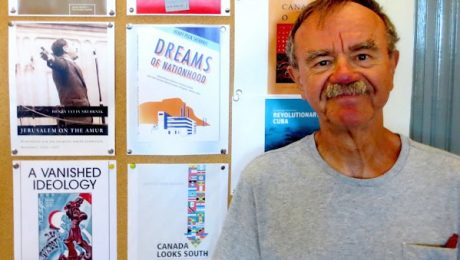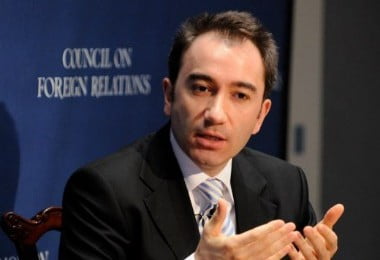Keyword: Israel

Fethullah Gulen on Israel and Jews
In an interview with the Atlantic magazine in August 2013, Gulen stated that “I had a chance to get to know practitioners of non-Muslim faiths better, and I felt a need to revise my expressions from earlier periods. “I realized and then stated that the critiques and condemnations that are found in the Quran or prophetic tradition are not targeted against people who belong to a religious group,” but “can be found in any person.”

Fethullah Gulen — A view from Israel
A Muslim religious leader, Fethullah Gulen, is daily in the news, as Turkish president Erdogan accuses him of plotting the recent coup, We are so used to Muslim clerics being or being considered terrorists that we give the matter little thought. And yet, the recent crackdown in Turkey on Gulen’s movement should be of grave concern to anyone who cares about the Middle East, about Islam, and about religion.

Why Erdoğan exploits anti-American sentiments
With dangerous and discriminatory language, PM Erdoğan exploits anti-American and anti-Israeli sentiment in Turkish society to demonize his opponents. Can Erdoğan win this game? If Erdoğan were confident enough about the corruption case, maybe he could. Instead of letting justice run its proper course, he used his political power to intervene in the judiciary and police forces. This must be considered the most important indicator of his fall.

The Gulen Movement has become Turkey’s most significant export
The Gulen movement has become a global movement. In other words, it is Turkey’s most important export. When you cross boundaries, you have to watch the balance. His statement on the flotilla incident was both domestic and international. However, we must not forget that Gulen does not recommend that people fight those in authority. His statements disturbed both the government and the conservatives in Turkey.

The Armenian issue of 1915, Turkish politics and Israel
I am in Salzburg, Austria, for a week as an Erasmus visiting professor. I am mainly contributing to the ongoing seminar classes of other professors who have asked me to talk about Turkey, Islam, democracy, human rights, Turkey’s EU membership process and the Hizmet movement. The students of the University of Salzburg are highly interested […]

Out of the rubble, a chance to mend relations
It is imperative to note that the Gulen Movement, which supports interfaith dialogue and has played a critical role in the social and political history of Turkey, does not support hostilities between Israel and Turkey. The movement encourages the two countries to repair their relations as soon as possible.

The intra-Turkish debate on the Mavi Marmara
But this does not mean that all Turks think the same way about the Turkish activists on the Mavi Marmara, and the particular course of action some of them took. In fact, an interesting debate has just begun – and within a very interesting place: the Islamic camp.

Which Turks hate Israel most?
Mustafa Akyol There was an interesting story in the Daily News last week, about the cancelling of a Yuval Ron concert in Istanbul. Mr. Ron, an award-wining Israeli musician, was supposed to play his tunes in a Sultanahmet hall, but the event was cancelled at the last minute due to protests, and, allegedly, some “threats.” […]




















